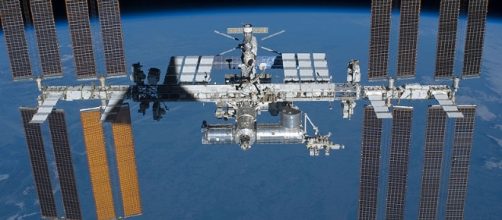Space News is reporting that the United Arab Emirates has started a human spaceflight program. The policy move is Part of the UAE’s drive to change its economy from an Oil And Gas based one to one based on technology. The Gulf country is already working on a robotic mission to Mars due to launch in 2020.
How would the UAE astronaut program work?
The UAE does not now nor does it intend to develop a native human spaceflight capability. Its astronauts will fly on the space missions of other, space-faring nations, the United States, Russia, or China.
One might expect to see UAE astronauts serving stints on the International Space Station. The Arab Gulf state would also likely become a partner in an American led, international deep space exploration effort. NASA and the UAE already have a space cooperation agreement.
Both Canada and the European Union have astronaut organizations that supply crewmembers for the ISS. The UAE would just be the next nonspace faring country to develop its own astronauts.
The commercial option
Within a year or two, SpaceX and Boeing will have working crewed spaceships, funded by NASA to service the ISS. Blue Origin and the Sierra Nevada are also working on craft capable of taking people into space. Smaller countries such as the UAE would be able to conduct their own crewed space programs, using commercial spacecraft to launch their astronauts.
The wider geopolitical significance of Arab astronauts
The UAE is developing its own space program for another reason that has to do with the aspirations of Middle Eastern youth. Sarah Amiri, the deputy project manager and science lead at the United Arab Emirates Mars Mission, explained that young people in the Middle East should be “given big projects.” The reason for having a space program is so that youth in the region would have an alternative to being jihadis, “to show there is a path that is based on science and technology and not on radicalism.”
Amiri was thinking about young people in the Muslim world becoming scientists and engineers. However, there is something almost magical about being an astronaut, an individual who flies in space.
The job of an astronaut is far more valuable than that of a jihadi.
The UAE would also stand to forge more international partnerships by having a space program that includes astronauts. The country would harken back to the beginnings of the Islamic era when Muslim countries were at the forefront of scientific discovery and technological development, a thousand years ago. Its success should prove to be illuminating for other countries in the region struggling to form national identities.


